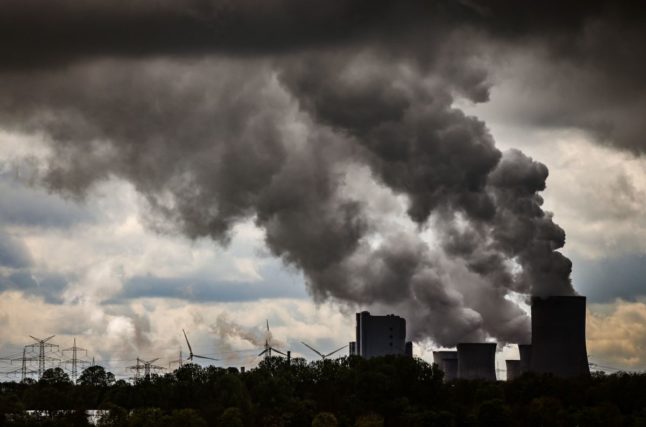According to the German Weather Service (DWD), winds of up to 100 km/h will blast across Lower Saxony and Saxony-Anhalt in the middle of the week, with the possibility of tornadoes in Mecklenburg-Western Pomerania.
The DWD predicts that showers and thunderstorms will move from the west in a northeasterly direction on Tuesday. Temperatures in the east and northeast will lie around 22C-26C, elsewhere 16C to 22C. Storms will subside in the night to Wednesday.
 Prediction for Wednesday. Photo: DWD
Prediction for Wednesday. Photo: DWD
Wednesday will see a continuation of windy weather in the northwest, with rain and thunderstorms elsewhere. Temperatures will cool to 15C-20C.
The forecast for Thursday is rain with strong winds. Thunderstorms may develop in the northwest during the afternoon and evening. Temperatures in the south will be a warm 22C-27C, and a cooler 16C-20C in the north. You might have trouble sleeping since there will be thunderstorms overnight before Friday in the north and west, but the south and east will remain mostly dry.
 Predictions for Thursday, Friday and Saturday. Photo: DWD
Predictions for Thursday, Friday and Saturday. Photo: DWD
Friday morning will begin with sun in the south and east with variable showers elsewhere. As the day progresses, there will be thunderstorms in central and southeastern Germany. Temperatures will hover around 18C-23C, or 22C-27C in the south and east.
The DWD does promise some sun over the weekend though. Saturday will be mostly sunny, despite showers in central and southern Germany. Temperatures should be around 22C in the north and 24C-28C in the south and southwest.
Sunday afternoon and evening will see thunderstorms in the west and northwest. The south and southwest will enjoy warm temperatures of 30C.




 Please whitelist us to continue reading.
Please whitelist us to continue reading.